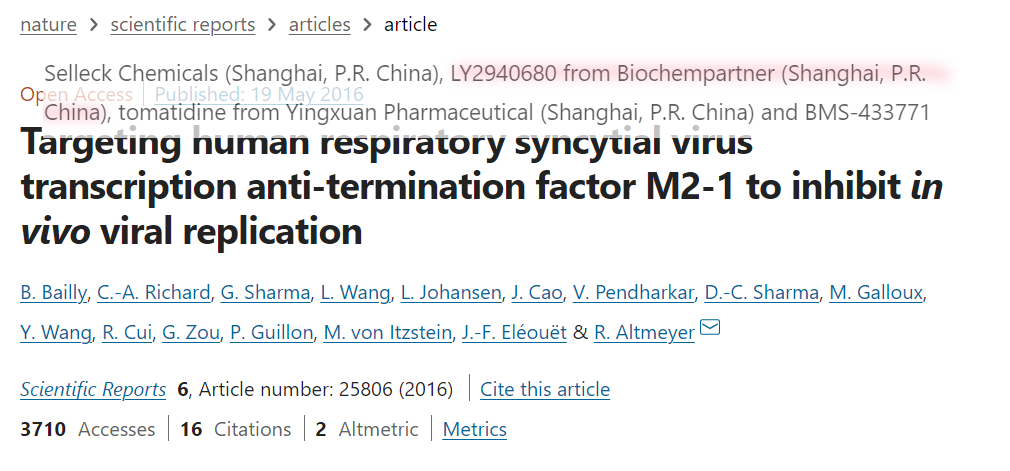Targeting human respiratory syncytial virus transcription anti-termination factor M2-1 to inhibit in vivo viral replication

Abstract Human respiratory syncytial virus (hRSV) is a leading cause of acute lower respiratory tract infection in infants, elderly and immunocompromised individuals. To date, no specific antiviral drug is available to treat or prevent this disease. Here, we report that the Smoothened receptor (Smo) antagonist cyclopamine acts as a potent and selective inhibitor of in vitro and in vivo hRSV replication. Cyclopamine inhibits hRSV through a novel, Smo-independent mechanism. It specifically impairs the function of the hRSV RNA-dependent RNA polymerase complex notably by reducing expression levels of the viral anti-termination factor M2-1. The relevance of these findings is corroborated by the demonstration that a single R151K mutation in M2-1 is sufficient to confer virus resistance to cyclopamine in vitro and that cyclopamine is able to reduce virus titers in a mouse model of hRSV infection. The results of our study open a novel avenue for the development of future therapies against hRSV infection.




